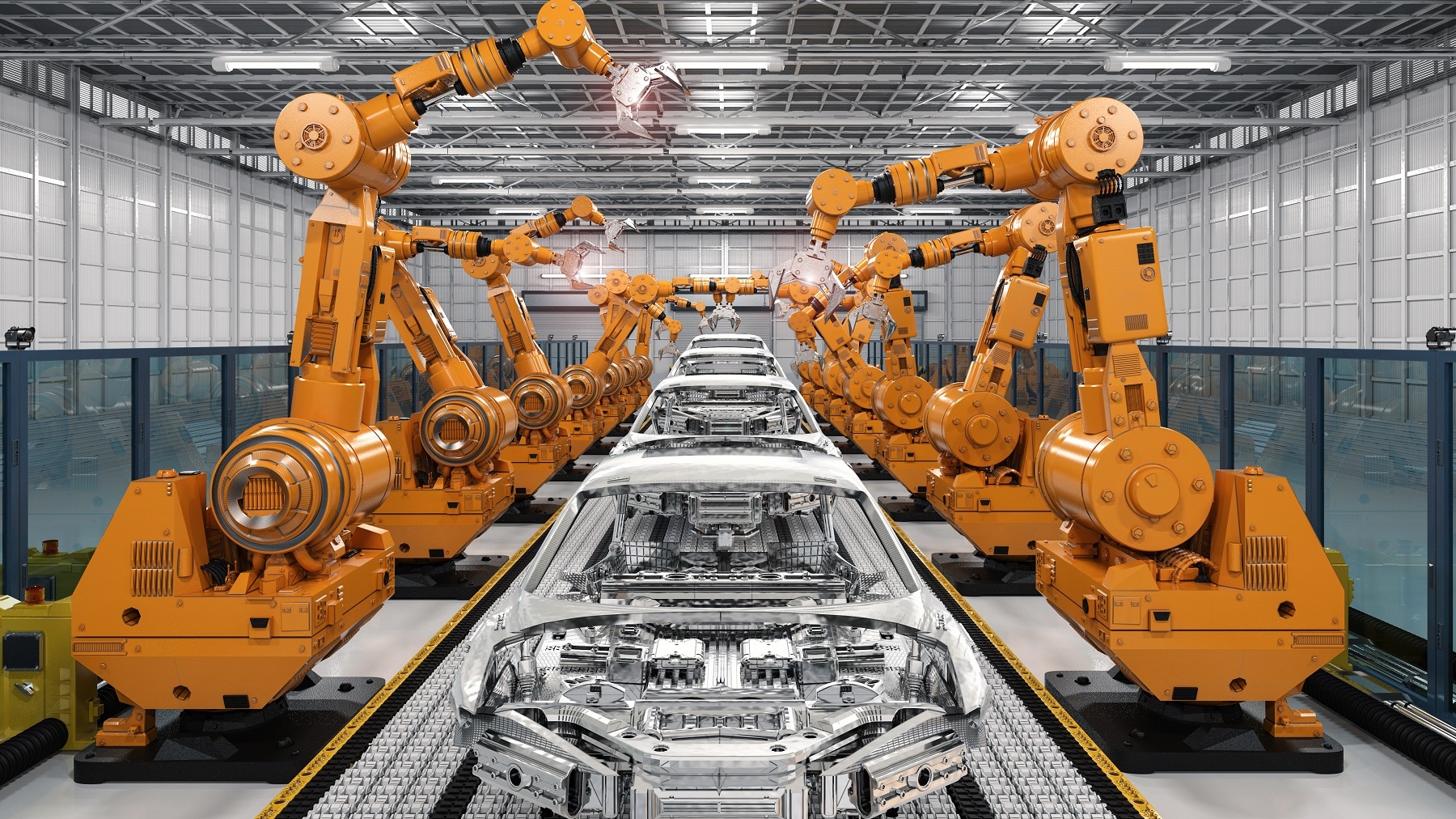"There are many myths and misunderstandings about AI"

AI is the topic at the moment. As is often the case in such cases, there are many myths and misunderstandings about it. Could you explain in a few sentences what AI is?

AI is a learning system created by humans. It starts with very simple systems that can recognise patterns, so-called Narrow AI, and goes up to systems that can recognise their environment and processes in it and react to them in a targeted manner.
In principle, AI systems are best understood as cybernetic systems. They have a sensor system through which information flows into them and a computational core on the basis of which the information is processed by mathematical models.
AI systems have passive output systems, such as screens or speakers, or even active motor technology that can operate physical infrastructure, so-called OT (Operating Technology), or a body of its own, as in factory robots or even just the mowing bot for the lawn. The highest form of AI is the so-called General AI, in reference to our human intelligence, which includes very many sensory and several motoric dimensions.
With AI systems, the information is of course digital in nature. They usually need large amounts of data (big data) to be trained in a batch job. The “dirty secret” of the AI industry today is labelling. A large number of people, especially for visual AIs, have to meticulously analyse and categorise the input data, i.e. the images and videos, which is called labelling.
"Human ability to make decisions based on small amounts of data still unrivalled."
The human ability to learn and draw conclusions on the basis of very small amounts of data, so-called delta learners, is still not possible for even the most up-to-date systems. An interesting branch of development in this area is edge intelligence, which will play a decisive role in connection with the IoT. There is currently heated discussion about the extent to which AI should control operating technology such as energy supply.
It is important to understand what AI cannot do today: It cannot understand and it cannot feel. Understanding is the basis for complex storylines and responsible action. Feelings are the quintessence for awareness and evaluation.
Understanding is the upcoming big leap in AI that will be truly revolutionary. Emotions are a “Hard Problem”, as science says, and simulation especially for evaluation seems possible to me, pure emotions like animals and we humans produce will probably not be feasible with silicon-based machines.
AI offers many opportunities for companies? Where do you see the main ones?
The honest answer would be everywhere. Of course, there are priorities that derive primarily from the company’s business. Here, I basically classify into two types of business models that have different AI relevance. One is for companies that produce a physical product and those that offer services. In the case of service companies, the major AI potentials are found in portfolio optimisation and in the customer journey, plus the usual efficiency gains in the operating model. For manufacturers of physical products, the greatest AI potential often lies in the product itself, for example in the autonomous vehicle, but of course in every other product. I can’t imagine any product or infrastructure part that will remain stupid.
In the business case of AI solutions, we very quickly talk about 100s to 1000s of % ROI per use case. No other IT investment can come close to offering such a high ROI!
If we look at the individual industries, the greatest potential is clearly in the medical field. Humans are super-complex physiological systems and all new diagnostics and therapies will require massive use of AI. Tools like CRISPR and gene therapies depend on AI. Healthy human longevity will not be possible without AI.
That is why AI as the 4th factor of production is also the most powerful and the fourth industrial revolution in my eyes is the AI revolution.
What areas of application do you see in concrete terms? And what requirements does a company have to meet in order to implement AI in a meaningful way?
Apart from the intelligent products I just mentioned, I see very easy productivity potential in production and quality optimisation. It is astonishing that more than 90% of the AI potential has not yet been captured.
Logistics in general is a single potential. It is astonishing that the logistics experts themselves think there is little potential. I could see for myself that the old simplex thinking blocks are a big problem here. Everyone can think for themselves whether the service we get from airlines, railways, ships and especially road transport is already optimised, or whether an incredible amount of inefficiency is the order of the day here.
In the area of information security, one can rely on intelligent ICS and compliance systems or AI cyber defence. If you look at the area of service, customer service optimisation is predestined for the use of AI. In addition, AI should of course be used in all operational decision-making processes to maximise ROI. Predictions or pattern recognition without automated decision and action are less than a tenth of the rent of AI projects.
In order to use AI effectively in the company, an AI strategy is needed, and the best way to develop one is to understand and describe the company as a cybernetic system. Then you not only recognise the AI potentials, but also understand how they must be connected.
Once you have the AI strategy, you can derive the individual initiatives and projects from it, prioritise them and implement them. Everything is connected in AI.
Where do you think many companies stand today? What are the next stages of development?
After almost 10 years, many companies are still in the process of developing many individual, small separate use cases. There are now many data lakes, but the yield is very low because there is a very heterogeneous understanding and acceptance of AI in the individual company divisions. The individual AI solutions float detached as islands from each other in the data lake. The island existence of AI is even worse than the silo existence of classic IT!
Last but not least, there is also a lack of user acceptance in the company itself, more than with customers or partners, which in turn is due to the lack of or very heterogeneous understanding of AI and diffuse job fears, which in turn stem from a lack of understanding about AI even in the company management. There is hardly anyone who can give conclusive answers in the field of AI and communicate AI strategies consistently.
And that brings us to the lack of AI governance in companies. This lack then inhibits data generation and integration. Knowledge is power and sharing data is often perceived as a personal loss of control for managers.
Another hurdle is a gap in understanding between IT and business or data science. In addition, the IT that takes over the realisation of AI in companies today is trimmed to operational efficiency and not to innovation. Bridging these gaps is an important task for IT consultants.
You spoke of the company as a cybernetic system? Where and how do people still have a place in this world?
In the medium term, I see a very fruitful collaboration between humans and AI systems emerging, in which humans find their role as teachers and AIs as apprentices. The main task of humans in the medium term will be to constantly train, optimise, monitor and coach AI. The development from High to Low and No Code shows us this path.
We will no longer need programmers, but simply experts who will guide the AIs naturally, via natural human communication.
We will also have many intelligent systems that have different strengths. Even the weaker ones will be able to learn from humans. This means that the human and the machine will work together very closely. The machine will not replace the human being, but the human being will change his role. Every human being is by nature a teacher, coach and supervisor, because humans, like most animals, are programmed to develop learning natural systems themselves – their children. It is the task of AI specialists to recognise this and to develop AI systems in this direction, as delta learners.
A lot of energy is spent on making the systems humanoid. But this is contrary to human sensibilities. We feel more comfortable when we recognise who we are dealing with than when we are obviously and even badly deceived.
Our pets don’t have to look like us for us to accept and love them. We are capable of personalising and loving things – hence the term car lover. The human brain is so powerful that it personalises AI systems on its own without being presented with a bad homunculus- that seems rather creepy to us!
Back to the topic of AI governance. What are its tasks?
AI governance has the task of being able to realise the great potentials of AI while at least minimising negative effects. What is often misunderstood is that AI governance has a limiting function. AI governance must be a balanced framework that enables the maximum potential of AI to be realised and negative impacts to be minimised and mitigated. It has an educational function for all stakeholders. AI governance thus accelerates the development of AI in the company, as it provides security for all stakeholders. At the same time, it should be part of the corporate social responsibility of every company and thus form the basis for a responsible approach to AI.
AI is not going away and there will be no more AI winter. Instead of keeping the topic nebulous, it should be described openly and realistically and AI governance should be equally clear and open. Then fears become knowledge and understanding and that in turn becomes solutions for the future.
AI is the 4th and most powerful factor of production and we are only just beginning to even recognise what potential we have.